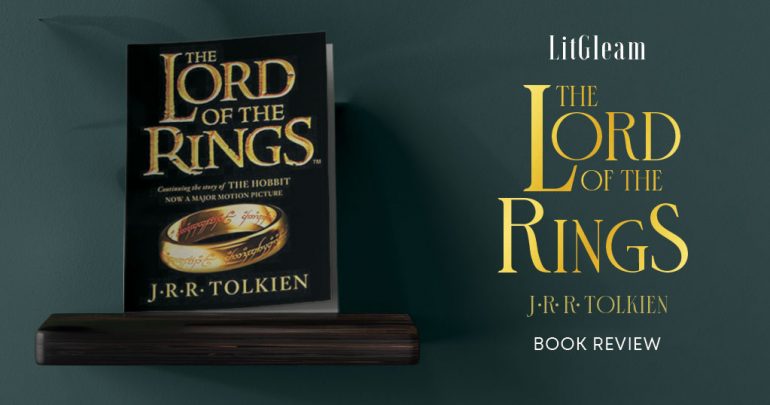Book Title: The Lord of the Rings
Author: J. R. R. Tolkien
Blurb: Since it was first published in 1954, the Lord of the Rings has been a book people have treasured. Steeped in unrivaled magic and otherworldliness, its sweeping fantasy has touched the hearts of young and old alike, with one hundred and fifty million copies of its many editions sold around the world.
To create a fantasy world is one thing, but to breathe life into ages of that world, to keep all the pieces together with such magnificent detail and rigor, to create character after believable character and make us care about most of them, even poor Smeagol/Gollum, that is literary labor of Hercules. And by pulling it off, J. R. R. Tolkien created the single most important manifestation of Fantasy that has ever and will ever be written. The Lord of the Rings has rightly been named a classic. It is part of the canon, and it deserves its place. It is entertaining, it is weighty, and it is loved and appreciated by nearly all readers alike around the globe. Its indisputable greatness has made it a legendary text that has been and will be passed down from generation to generation.
On the surface, it’s a heroic fantasy novel, and quite a good one. It’s a gripping, well-realized story, with an interesting fantasy world as the background. Under the surface story, it’s also clear that there’s a moral discourse. It’s not an allegory; as J. R. R. Tolkien points out in the foreword, he hated allegory, and we certainly don’t have an in-your-face piece of Christian apology by numbers. Nonetheless, the J. R. R. Tolkien has constructed some inspiring and thought-provoking symbols. The Ring confers great power, but the only way to defeat Sauron is to refuse that power and destroy it, even at great personal cost. Frodo’s self-sacrifice is quite moving.
I also think that Gandalf is an unusually interesting Christ figure; sufficiently so that many people refuse even to accept him as one, though, at least to me, the argument on that point seems convincing. He comes from Valinor, obviously the Heavenly Realm, to help the Free Peoples of the West. A central part of his message is the importance of mercy, as, in particular, shown by the memorable scene near the beginning, when he rebukes Frodo for wishing that Bilbo had killed Sméagol when he had the opportunity. As we discover, Sméagol is finally the one person who can destroy the Ring. And let’s not miss the obvious point that Gandalf is killed, and then returns reborn in a new shape. The readers find him vastly more sympathetic than C.S. Lewis’s bland Aslan, and he is the book’s most memorable character.
If you enjoy reading by any measure and means then you cannot rob yourself of the pleasure of reading this legendary piece of text. It was, is, and will always remain highly recommended.
5/5




